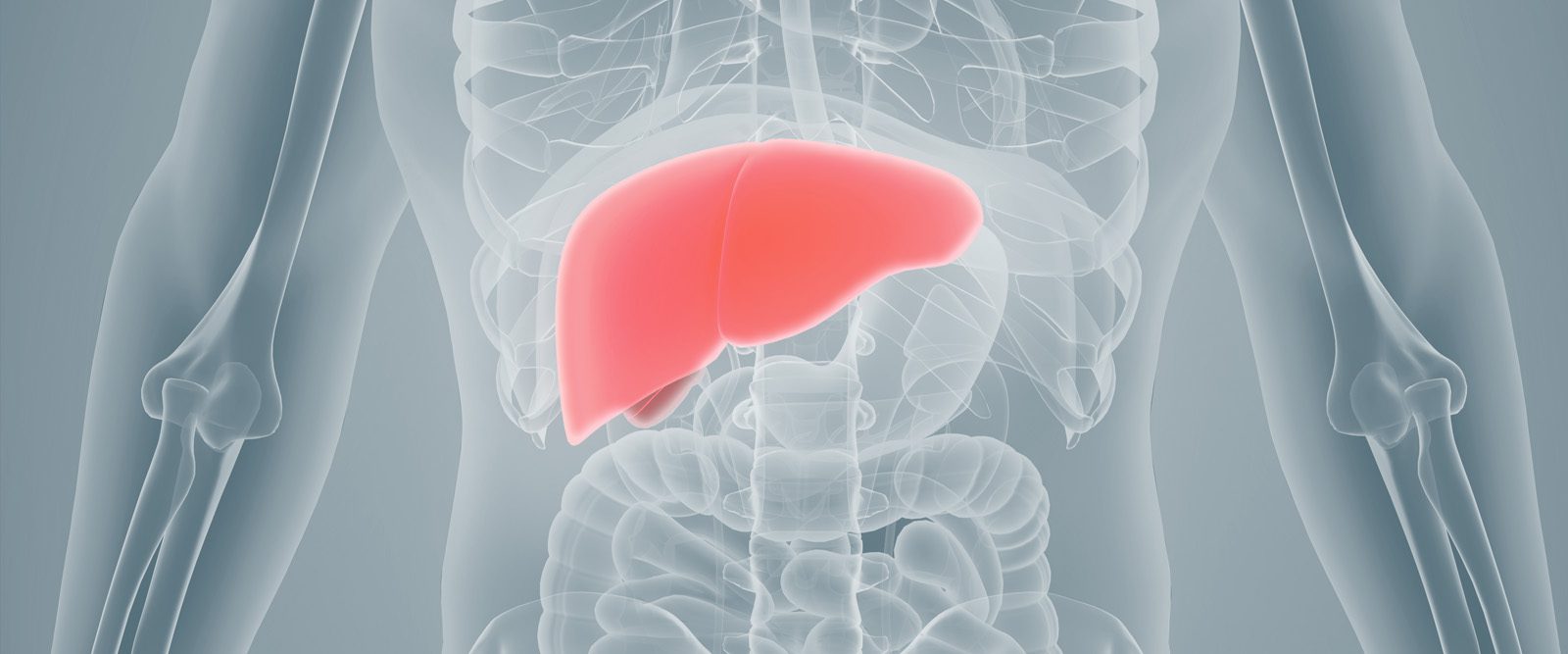What to Know About Hepatitis C
A liver expert explains how hepatitis C differs from the other hepatitis viruses and what could put you at risk for contracting it.


Hepatitis C, a viral infection often referred to as a “silent killer” because of its lack of symptoms, can lead to long-term liver disease if left untreated. The good news is that the disease is curable through medication. The bad news? Despite the existence of effective therapies, the number of new hepatitis C cases in the U.S. more than doubled between 2013 and 2020, according to the latest available data from the CDC.
The factors contributing to the rise are complex but are tied to the rise of the opioid epidemic and IV drug use; plus social and economic barriers to treatment mean only one-third of people who are diagnosed with hepatitis C receive treatment. Anywhere from 2.4 million to 4.7 million Americans are estimated to be living with hepatitis C — the figures can be hard to track because many are unaware they are even infected.
“This is why it’s so important to get screened or tested,” says Dr. Anthony Choi, transplant hepatologist at NewYork-Presbyterian/Weill Cornell Medical Center and assistant professor of medicine at Weill Cornell Medicine. “The sooner you know, the earlier you can start treatment and avoid damage to the liver.”
Health Matters spoke with Dr. Choi to learn what to know about hepatitis C and how it can impact your health.

Dr. Anthony Choi
What is hepatitis C and what are its symptoms?
Dr. Choi: Hepatitis C is an infection caused by a virus that primarily affects the liver. The damage it causes can lead to chronic liver disease and eventually end-stage liver disease. Today the most common way to contract hepatitis C is by using unsterile needles or syringes. It’s also transmissible by bodily fluids like blood or semen.
Oftentimes, people don’t know they’re infected with hepatitis C. We see it in our clinics all the time: Patients felt fine, but their liver enzyme levels happened to be a bit elevated in an otherwise routine checkup. A lot of times with liver disease, unless you’ve gotten to the point where your liver is really damaged and scarred, you might not have any symptoms.
When hepatitis C is first contracted, you might feel like you have an infection that feels like a cold, with body aches, fatigue, some abdominal discomfort — but it’ll eventually pass even if you didn’t fully clear the virus. That can make people think they just had a cold. Meanwhile, the virus could be sitting around in your body and causing damage to your liver over time.
How is hepatitis C different from hepatitis A and B?
The biggest difference is that hepatitis A is usually a self-limited disease, meaning your body is typically able to clear the virus on its own. Afterward, you’ll have generated antibodies and built immunity to it. Hepatitis A is commonly contracted when traveling, and you can feel terrible when you first get it — symptoms might include nausea, vomiting, and possibly even becoming jaundiced if your liver becomes very inflamed. But typically, you get better rather quickly.
With hepatitis B or C, there is a chance your body can clear the virus on its own, but it’s also likely to hang out in your body, where it can keep attacking the liver. If left unchecked or untreated, both can cause end-stage liver disease and liver cancer.
There’s no cure for hepatitis B, but there is a vaccine to prevent infection up front, and there is treatment for it if you do contract it. The recommended treatment is a lifelong medication regimen to suppress the virus, much like with HIV, so that the viral load in your body is at an almost undetectable level. But you’re never cleared 100% from the disease. Hepatitis C, meanwhile, is completely curable with medication, but there is no vaccine for it.
“Oftentimes, people don’t know they’re infected with hepatitis C. Unless you’ve gotten to the point where your liver is really damaged and scarred, you might not have any symptoms.”— Dr. Anthony Choi
What is the CDC recommendation for screening, and which populations are most at risk?
The CDC’s official recommendation is to get screened at least once in a lifetime for adults age 18 and older. Screening involves taking a blood test to detect the presence of hepatitis C antibodies, which just means you’ve been exposed to the virus at some point in the past. If you test positive for antibodies, additional testing will be done to detect if you currently have the hepatitis C virus. The results usually take a few days to a week to come back. Today, the population of most concern for contracting hepatitis C are those using drugs intravenously who may be using unsterile needles or syringes.
How can you protect yourself from hepatitis C?
The best way to protect yourself is avoiding behaviors or activities that put you at risk of getting infected, like IV drug use or not using a condom while having sex. If you get a tattoo, make sure you are going to a reputable tattoo parlor that follows health guidelines. And make sure to get screened according to the CDC recommendation, although it’s smart to seek out additional testing during periods when you believe you’ve been at higher risk for hepatitis C.
As for risk mitigation on a community level, some state and local governments, including in New York, have set up needle-exchange programs to provide clean needles to people injecting drugs to help curb the risk of infection for diseases like hepatitis B and C and HIV.
What are the treatment options for hepatitis C?
In 2011 the FDA approved the first generation of medicines to cure hepatitis C, which are called DAAs, or direct-acting antivirals. Prior to then, a patient would be put on a combination of medicines for almost year, but the treatment didn’t always work and the side effects were terrible. Today, you can take a single pill once a day for two or three months, depending on the prescription, and the cure rate is almost 100%. After that course of treatment and getting checked to make sure you are disease-free, you’re all done. Reinfection is possible, but you can be treated again with the medication. The challenge is that the high cost of DAAs impacts access to treatment.
Interestingly there has been a lot of public focus recently on hepatitis C. The World Health Organization set elimination targets for hepatitis C by the year 2030. President Joe Biden also included in his proposed budget some funds to help eliminate the disease by 2030, including to expand access to the medications. Some people like to think that hepatitis C is “old news” because it is curable, but there’s clearly a lot more work and research that needs to be done to figure out how to reduce hepatitis C rates.
Anthony Junsung Choi, M.D., is a transplant hepatologist at NewYork-Presbyterian/Weill Cornell Medical Center and assistant professor of medicine in the Department of Medicine at Weill Cornell Medicine. He completed his medicine residency and gastroenterology fellowship at Weill Cornell Medicine and completed his advanced fellowship training in transplant hepatology at NewYork-Presbyterian/Columbia University Irving Medical Center, where he was chief hepatology fellow. He specializes in the management of patients with liver diseases including autoimmune liver disease, hepatitis B and C, fatty liver disease, metabolic liver disease, and liver cancers.

